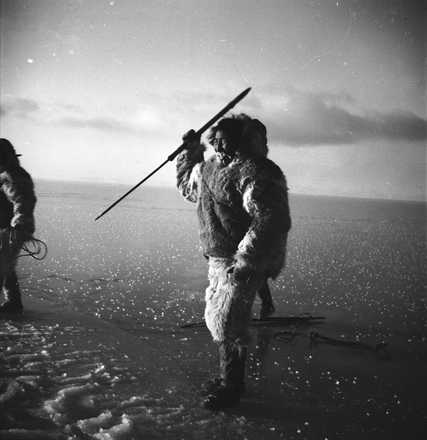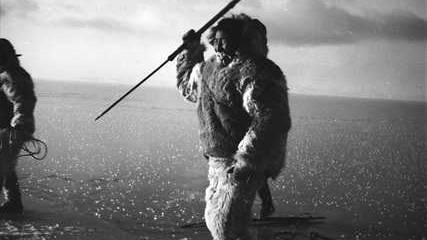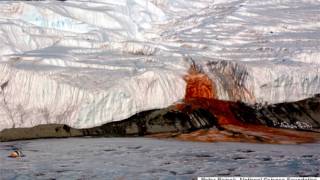Study Offers Clues to Arctic Mystery: Paleo-Eskimos’ Abrupt Extinction
Source: nytimes.com
Seven hundred years ago, the Dorset people disappeared from the Arctic. The last of the Paleo-Eskimos, the Dorset culture had dominated eastern Canada and Greenland for centuries, hunting seal and walrus through holes in the ice and practicing shamanistic rituals with ornate carvings and masks.Then, they promptly ceased to exist. Modern archaeologists have scoured troves of Arctic artifacts, searching for clues to the Dorset’s sudden extinction. Did they assimilate when the Thule, ancestors of the modern Inuit, advanced from the Bering Strait with dog sleds, harpoons and large skin boats? Or did they die out, victims of either an unfortunate epidemic or a violent prehistoric genocide?
Now, scientists have begun to chip away at this and other mysteries of the New World Arctic. In a paper published Thursday in the journal Science, researchers analyzed 169 ancient DNA samples to study the origins and migration patterns of early Arctic cultures. The results point to a single, genetically distinct Paleo-Eskimo population that thrived in isolation for more than 4,000 years, only to vanish in a matter of decades.

Genetic analysis suggests that a group known as the Paleo-Eskimos, who arrived in North America about 5,000 years ago, did not give rise to the modern Inuit.
“By using genetics and genomics, they were able to answer questions that archaeologists have been trying to solve for decades,” said Todd R. Disotell, a professor of anthropology at New York University, who was not involved in the research. “Tiny fragments of teeth and hair are now yielding more data than we ever imagined.”
Archaeologists traditionally rely on ancient artifacts, like spearheads and potsherds, or linguistics to track population shifts. When ancient cultures start using modern tools or altering their languages, researchers consider such changes cultural and even biological turning points, representing an inevitable period of intermarriage and assimilation.
Radiocarbon dating of human remains can be inexact. The Paleo-Eskimos subsisted on seafood, and the Arctic is packed with ancient carbon that is absorbed by marine life and may confound efforts to date cultural changes.
But genomic analysis offers a far more direct link to the past. “With genetics, you’re looking at the ancient people themselves, not their refuse, so to speak,” Dr. Disotell said.
To learn more about the Paleo-Eskimos and their sudden disappearance from the historical record, researchers collected DNA fragments from ancient human remains across Greenland, Canada and Siberia. Their results suggest that the Paleo-Eskimos remained genetically isolated for thousands of years, and that the Dorset culture did not vanish through assimilation. Modern Inuits, then, are descendants of the Thule and not directly related to the Paleo-Eskimos.
“This is surprising, because every time people meet each other we find evidence of sex between the people,” said Eske Willerslev, an evolutionary biologist at the Center for GeoGenetics at the University of Copenhagen and an author of the study. “But here we have a unique situation, where even though we know they must have been in touch with their neighbors, they chose to live in isolation.”
[...]
Read the full article at: nytimes.com






















